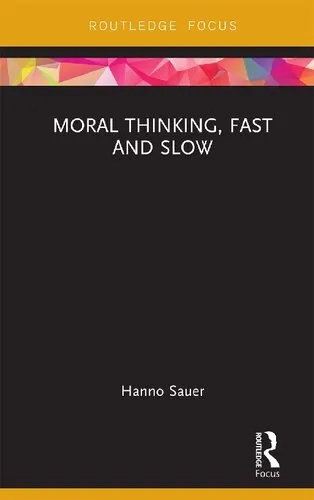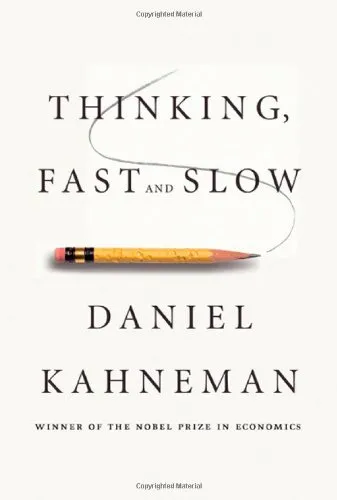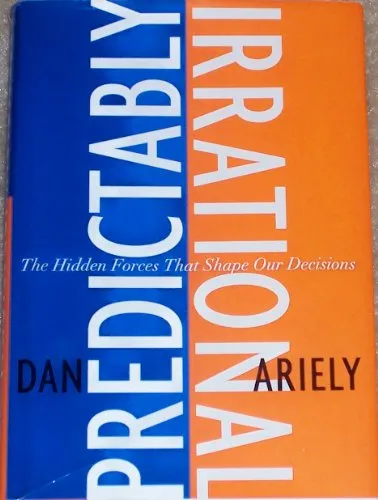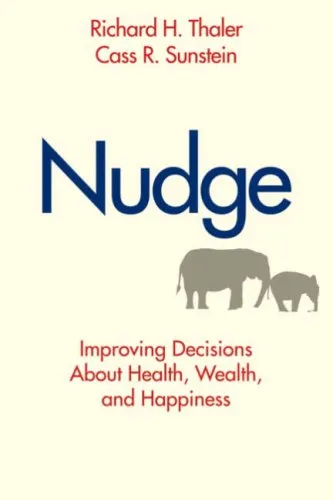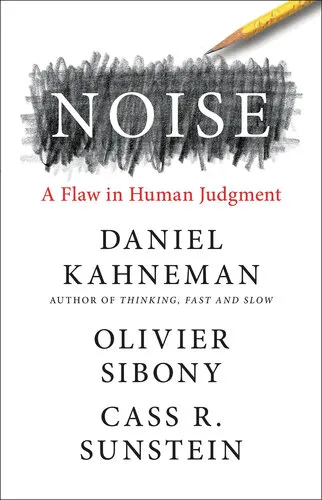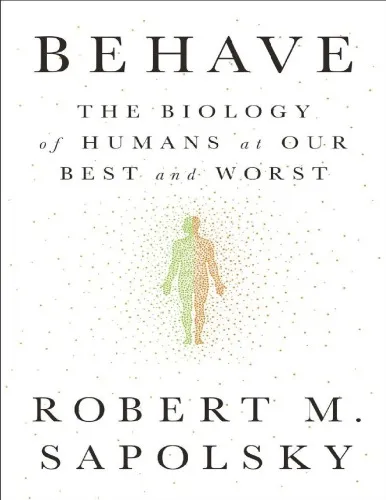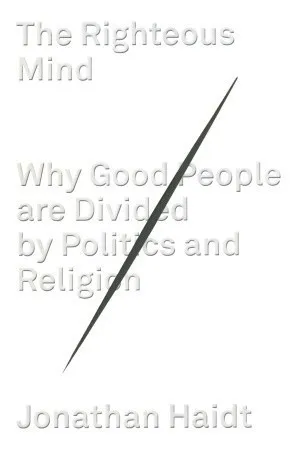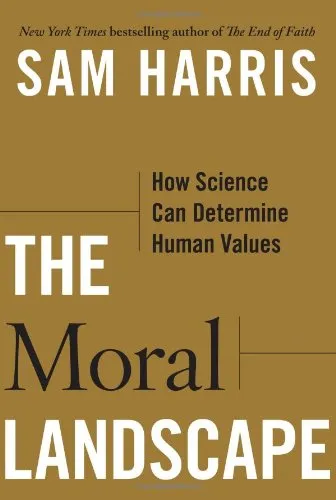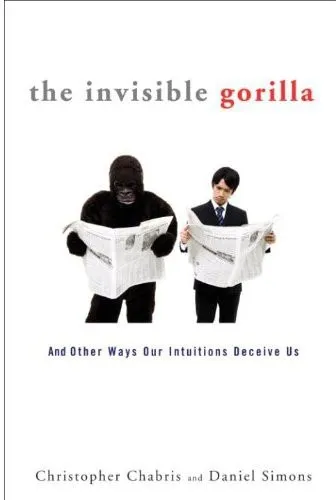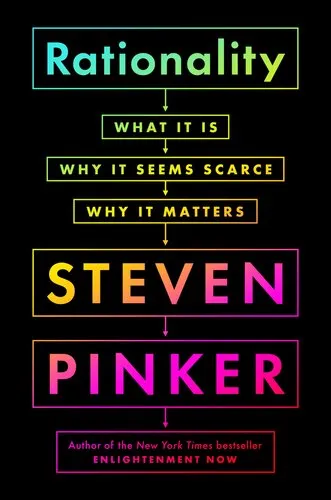Moral Thinking, Fast and Slow (Routledge Focus on Philosophy)
3.5
بر اساس نظر کاربران

شما میتونید سوالاتتون در باره کتاب رو از هوش مصنوعیش بعد از ورود بپرسید
هر دانلود یا پرسش از هوش مصنوعی 2 امتیاز لازم دارد، برای بدست آوردن امتیاز رایگان، به صفحه ی راهنمای امتیازات سر بزنید و یک سری کار ارزشمند انجام بدینکتاب های مرتبط:
Persian Summary
معرفی کتاب
کتاب Moral Thinking, Fast and Slow نوشته هانو ساور، تلاشی برای پیوند زدن مطالعات جدید علمی در روانشناسی و علوم اعصاب با سوالات کلاسیک فلسفی در زمینه اخلاق است. این کتاب با بهرهگیری از مفاهیم و نظریات علوم شناختی، به بررسی چگونگی اخذ تصمیمات اخلاقی توسط انسانها میپردازد و دو فرآیند اصلی تصمیمگیری اخلاقی را تحلیل میکند: یکی سریع و شهودی و دیگری کند و استدلالی.
خلاصه ای از کتاب
این کتاب به دو بخش عمده تقسیم شده است. بخش اول به بررسی تحقیقات اخیر در زمینه روانشناسی اخلاقی میپردازد و نشان میدهد که چگونه تصمیمات اخلاقی اغلب به صورت سریع و خودکار صورت میگیرند. در اینجا، ساور به معرفی مدلهای شناختی میپردازد که توضیح میدهند چرا واکنشهای اخلاقی ما به مثابه غریزه عمل میکنند، در حالی که به نظر میرسد هیچ زمان یا تلاش خاصی برای فکر کردن نیاز ندارند. بخش دوم تمرکز خود را بر فرآیندهای استدلالی و ساختاریافتهتر در تصمیمگیری اخلاقی قرار میدهد. این بخش به بررسی نقشی میپردازد که اندیشه کند و تحلیل عقلانی در دستیابی به نتایج اخلاقی بهتر دارد و نحوهی ترکیب این دو نوع تفکر برای ایجاد قضاوتهای معنادار و متعادل را بیان میکند.
نکات کلیدی
- مفهوم قرائت سریع و کند اخلاقی، و چگونگی تاثیرگذاری هر یک بر تصمیمگیری.
- تکیه بر تحقیقات روانشناسی و علوم اعصاب برای فهم فرآیندهای مختلف قضاوت اخلاقی.
- نقش اخلاق استدلالی و شهودی در ایجاد تصمیمات اخلاقی معتبر.
- اهمیت درک دقیق از انگیزشها و تأثیرات اخلاقی بر تصمیمگیریهای روزمره.
جملات معروف کتاب
"اخلاق همانقدر که فردی است، اجتماعی هم هست و بر اساس تعامل این دو حوزه شکل میگیرد."
"برای رسیدن به قضاوتهای اخلاقی معتبر، نه تنها باید به احساس و شهودات خود بلکه به استدلال و تحلیل روشمند نیز تکیه کنیم."
چرا این کتاب مهم است؟
کتاب Moral Thinking, Fast and Slow تلاش میکند تا گسست بین علوم تجربی و فلسفه را کاهش دهد. این کتاب به فلسفه اخلاق از دریچهای نوین نگاه میکند و نشان میدهد که چگونه تحقیقات جدید میتوانند درک عمیقتری از طبیعت و فرآیند تصمیمگیری اخلاقی به ما عرضه کنند. مطالعه این کتاب میتواند به ما کمک کند تا رفتارهای اخلاقی خود را بهتر درک کنیم و راههای نوینی برای ارتقاء قضاوتهای اخلاقی بیابیم.
Welcome to 'Moral Thinking, Fast and Slow', a compelling exploration of the complexities and intricacies of moral judgment and decision-making. This book provides an extensive analysis of the contrasting processes of moral thinking – the fast, intuitive processes and the slower, more deliberate thinking. Through rigorous philosophical inquiry and insights from cognitive science, 'Moral Thinking, Fast and Slow' seeks to unravel how humans make moral evaluations, bridging the gap between automatic reactions and conscious reasoning. Below, we dive into a detailed summary and other essentials of the book.
Detailed Summary of the Book
Hanno Sauer's 'Moral Thinking, Fast and Slow' is an academic yet accessible investigation into how humans process moral problems. Drawing on a dual-process theory from psychology, Sauer takes readers on a journey through the mental mechanisms behind our moral judgments. The book is divided into sections that explore the intuitive and reflective dimensions of moral reasoning. Central to this work is the question of how these fast and slow processes coalesce to form what we recognize as ethical conduct.
The "fast" thinking comprises automatic, emotional responses based on evolutionary and social conditioning, originating from rapid assessments that require little deliberate thought. These reflexive judgments are often influenced by immediate perceptions and emotions. In contrast, "slow" thinking refers to more sophisticated rational deliberations that involve considering abstract ethical principles and potential long-term consequences. Sauer argues for a more integrated understanding of moral cognition that recognizes the interplay and balance between these quick intuitions and careful reasoning. By doing so, he invites readers to appreciate the implications for ethics, education, and policy-making.
Key Takeaways
- Moral judgments are not solely the domain of either emotions or reason but arise from a complex interaction between the two.
- The dual-process theory helps in understanding the diversity and conflict often seen in moral beliefs and behaviors across cultures.
- Acknowledging the role of both fast, automatic responses and slow, deliberate thinking can enhance moral education and ethical practice.
- The book challenges traditional binaries in moral philosophy, encouraging a more nuanced approach to moral cognition.
Famous Quotes from the Book
"Our moral judgments are often swift and automatic, yet they still require the slow, meticulous effort of ethical reasoning to be fully understood and justified."
"To grasp the essence of morality, one needs to navigate the interplay between intuition and reason."
Why This Book Matters
In an era marked by moral and ethical dilemmas that span from personal to global scales, understanding how we come to our moral decisions is more crucial than ever. 'Moral Thinking, Fast and Slow' is pivotal for several reasons. First, it provides a comprehensive framework for analyzing how we engage with moral issues, which is beneficial for educators, policy-makers, and individuals alike. Second, the book pushes against conventional wisdom that often pits emotion against reason, reinforcing the importance of seeing them as collaborative forces in moral judgment.
Furthermore, by linking philosophical perspectives with empirical research from the cognitive sciences, Hanno Sauer offers readers an interdisciplinary approach that is both enlightening and practical. For anyone interested in moral psychology, ethics, or cognitive science, this book offers valuable insights that can lead to a deeper understanding of how humans navigate the moral landscapes of their lives.
دانلود رایگان مستقیم
شما میتونید سوالاتتون در باره کتاب رو از هوش مصنوعیش بعد از ورود بپرسید
دسترسی به کتابها از طریق پلتفرمهای قانونی و کتابخانههای عمومی نه تنها از حقوق نویسندگان و ناشران حمایت میکند، بلکه به پایداری فرهنگ کتابخوانی نیز کمک میرساند. پیش از دانلود، لحظهای به بررسی این گزینهها فکر کنید.
این کتاب رو در پلتفرم های دیگه ببینید
WorldCat به شما کمک میکنه تا کتاب ها رو در کتابخانه های سراسر دنیا پیدا کنید
امتیازها، نظرات تخصصی و صحبت ها درباره کتاب را در Goodreads ببینید
کتابهای کمیاب یا دست دوم را در AbeBooks پیدا کنید و بخرید
1610
بازدید3.5
امتیاز0
نظر98%
رضایتنظرات:
3.5
بر اساس 0 نظر کاربران
Questions & Answers
Ask questions about this book or help others by answering
No questions yet. Be the first to ask!
